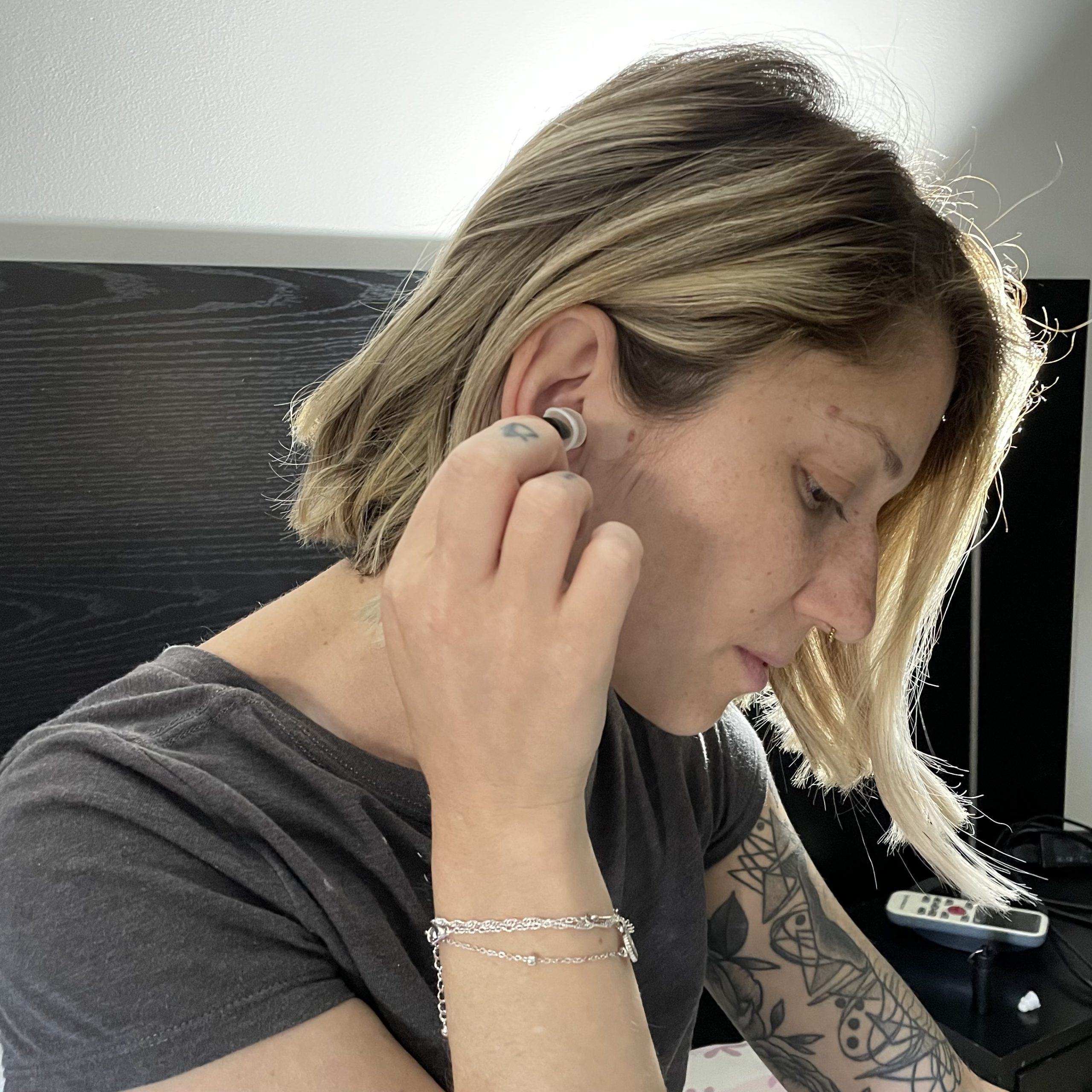The Science Behind Sleep: How Blocking Noise Improves Deep Rest
By: Maya from Bollsen
Exhausted despite sleeping 8 hours? Even light noise can disrupt deep sleep stages. Deep sleep earplugs —like Bollsen Life+—are designed to reduce noise without blocking alarms, helping you protect your REM cycles and wake up truly refreshed. Noise is one of the biggest culprits behind disturbed sleep, especially in modern environments filled with snoring, traffic, or electronics. One of the most effective ways to address this? Blocking disruptive sounds with earplugs designed specifically for deep sleep. This article explains the science behind how noise interrupts your rest and how the right earplugs can restore balance to your nights.Sleep Structure: What Happens at Night?
Your brain cycles through multiple sleep stages every night:- Stages 1 & 2 – Light Sleep: Transition phases where your heartbeat slows and muscles relax.
- Stage 3 – Deep Sleep: This is slow-wave sleep, the most restorative phase for body repair, immune recovery, and growth.
- REM Sleep: Your brain becomes more active, processing emotions and consolidating memory.
If you’re new to understanding how sleep gets interrupted, our guide on Why Can’t I Sleep? How Earplugs Can Help with Snoring and Noise offers a great introduction to the problem and its emotional toll.
The Sound Problem: Why Noise Disrupts Sleep
Even when you’re unconscious, your brain is still alert to sound. The auditory cortex remains semi-active during sleep, which is why small noises can cause micro-arousals—brief, subconscious awakenings that knock you out of deeper sleep phases. According to the Sleep Foundation, even low-level noise like distant cars or humming appliances can disrupt sleep structure without fully waking you up.The Link Between Noise and Sleep Disorders
Scientific studies confirm that noise reduction improves both sleep quantity and quality. A study published in the journal Sleep found that using earplugs and eye masks significantly increased REM sleep and reduced disturbances in noisy environments (PMC). Additionally, Harvard’s T.H. Chan School of Public Health reports that long-term noise exposure contributes to insomnia, poor cardiovascular health, and cognitive decline. These risks make noise reduction for sleep a public health priority.What Makes Deep Sleep Earplugs Different?
Not all earplugs are created equally. Foam plugs used in industrial settings often block too much or cause discomfort. Deep sleep earplugs are designed specifically for overnight use. They:- Block noise in the 20–30 dB range
- Use soft, skin-safe materials like silicone
- Fit securely for side sleepers
- Balance sound filtering to let alarms through

Why Bollsen Life+ Are the Best Deep Sleep Earplugs
Our Bollsen Life+ Earplugs combine advanced engineering with practical comfort. Created for daily use, they help users maintain sleep quality across all environments—from city apartments to shared bedrooms.Key Features:
- 24 dB certified noise reduction
- Medical-grade silicone, soft and hypoallergenic
- Eco-friendly and reusable design
- Side-sleeper fit for all-night comfort
Who Benefits from Noise Reduction for Sleep?
From light sleepers to shift workers, many people face nightly disruptions. Here’s how deep sleep earplugs help different groups:| Sleeper Type | Noise Trigger | Impact | Earplug Benefit |
|---|---|---|---|
| Light Sleepers | Snoring, appliances | Frequent awakenings | Blocks variable and low-frequency noise |
| City Dwellers | Traffic, nightlife | Difficulty falling asleep | Filters high-pitched and distant sounds |
| Parents | Household noises, monitors | Incomplete REM cycles | Allows important sounds to pass through |
| Shift Workers | Daytime distractions | Poor melatonin production | Creates quiet sleep environment |
The Health Benefits of Better Sleep Quality
When you consistently reach deep sleep:
-
Your body repairs tissue and strengthens immunity
-
Your brain detoxifies and processes information
-
Mood and cognitive function improve
-
Risk of chronic disease decreases
Sleep quality isn’t just about feeling rested—it’s about long-term health resilience.
How to Maximize Results with Earplugs
To make the most of your earplugs:
-
Follow a consistent bedtime routine
-
Keep electronics out of the bedroom
-
Use blackout curtains
-
Avoid caffeine after 2 p.m.
-
Clean your earplugs regularly
For more expert sleep hygiene guidance, see the CDC’s Sleep Hygiene Tips.
How to Choose & Use Deep Sleep Earplugs
Choosing the right earplugs is essential for achieving true deep sleep. Look for medical-grade materials, a snug fit, and an SNR (Signal-to-Noise Ratio) of at least 24 dB. Reusability and comfort over long hours are key.
Proper usage is just as important—earplugs won’t work if inserted incorrectly.
Follow our step-by-step earplug insertion guide to ensure a perfect fit every time and maximize your sleep quality.
Final Thoughts: Sleep Deeper, Live Better
We spend a third of our lives sleeping—yet most of us rarely consider the quality of that time. Noise is one of the most overlooked barriers to true rest. Deep sleep earplugs are a simple, science-backed tool that improves how deeply we sleep and how well we recover.
When your brain is allowed to cycle naturally through all stages—especially REM and slow-wave sleep—you wake up sharper, calmer, and more resilient. Make the change tonight. Trust in noise reduction for sleep and discover the transformation in your day-to-day life.
Try Bollsen Life+ Earplugs and give your sleep the quiet it deserves.

